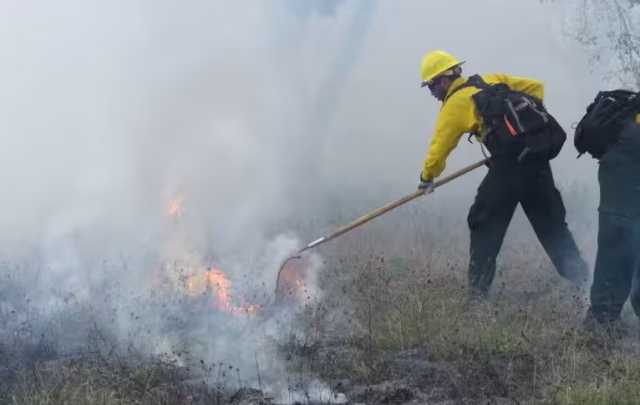Saudi Arabia Says Peak Demand for Oil Is an ‘Alarm’
Ayesha Daya, Bloomberg via Business Week
Saudi Arabia must be “very serious” about any possible peak in oil demand, which is an “alarm” for OPEC’s biggest exporter to diversify its economy, a Saudi Oil Ministry adviser said.
Saudi Arabia is making a push into renewable energy and is starting its first carbon-capture project, Oil Ministry adviser Mohammad al-Sabban said today at the Jeddah Economic Forum. The country will start injecting carbon dioxide into Ghawar, the world’s largest oilfield, in 2012, he said.
“Talk of oil demand peaking is an alarm to speed up the economic diversification process,” al-Sabban said. “The challenges facing Saudi Arabia are huge: we need to develop Saudis in order to be innovative, creative, to catch up with the rest of the world.”
(15 February 2010)
As Gail Tverberg has pointed out at The Oil Drum, peak demand is the twin sister of peak supply.
Related from AP: Saudi Arabia preparing for oil demand to peak.
Virgin’s Richard Branson takes on peak oil
Ben Quinn, Christian Science Monitor
A report out of Britain funded by Virgin Airlines owner Richard Branson and other British business leaders warns that peak oil is looming in 2015. The controversial idea that growing oil demand will soon outstrip more finds is capturing the attention of governments.
—
Long-accustomed to being dismissed as alarmists, the arguments of those warning of an impending peak oil crisis are now being bolstered by support from multi-billionaires like Richard Branson.
… But it’s not just the powerful backing from Branson and company that is suddenly giving heart to those warning of peak oil. They also point to signs that even the British government is opening itself up to the possibility of an oil drought.
“Some people see peak oil (as an) imminent and high probability threat, others say that demand will peak first,” Chris Barton, the British government official responsible for planning the country’s energy security, said Wednesday at an event to mark the release of the report. “So who is right? Well, we don’t know who is right, but we do recognize that the risk of rising and volatile oil prices is real.”
In the highly polarized debate over peak oil, researchers blame the poor quality of data available to them and a lack of transparency from oil producers and corporate interests as the main reasons for why the picture remains clouded.
(15 February 2010)
Oil groups mount legal challenge to Schwarzenegger’s tar sands ban
Terry Macalister, The Guardian
A lobby group that includes BP and Shell in its membership has launched a legal challenge against low-carbon legislation in California that in effect rules out the use of oil from Canadian tar sands. The action by the National Petrochemical & Refiners Association (NPRA) comes amid growing political, investor and consumer pressure on US oil companies not to participate in the carbon-intensive tar sands of Alberta.
A NPRA statement said the legislation was unlawful for a number of reasons, including the imposition of “undue and unconstitutional burdens on interstate commerce”.
It claimed the legislation would also have “little or no impact” on greenhouse gas emissions nationwide and would harm US energy security “by discouraging the use of Canadian crude oil and ethanol produced in the American midwest”.
The refiners are joined by the American Trucking Associations and the Centre for North American Energy Security in their attempt to overturn legislation from California’s governor, Arnold Schwarzenegger, who wants to cut C02 emissions from transport by 10% by 2020.
Shell’s chief executive, Peter Voser, recently announced plans to slow investment in Alberta, though he denied this was anything to do with environmental issues, saying it was a reaction to lower oil prices and a reduction in Shell’s profitability.
(14 Feb 2010)





